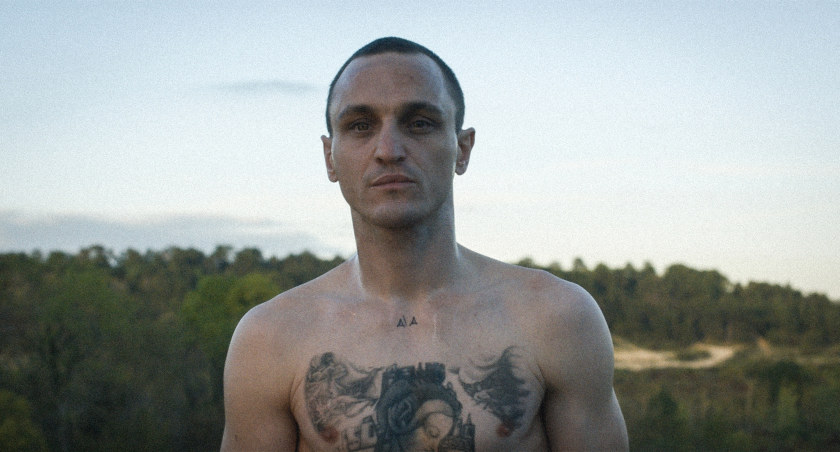Vassilis Kroustallis reviews Giacomo Abbruzzese's 'Disco Boy.
Giacomo Abbruzzese's 'Disco Boy' is mostly a story of transference, and a magical (if not altogether accomplished) bromance between Europe and Africa, the old continents with its 'New' Europeans and another continent, still in the brink of exploitation.
Moving between two distinct narratives, 'Disco Boy' starts with the gaze of the exotic alien in Nigeria (the African scenes were shot in Reunion Island), mesmerizingly shot by Hélène Louvart (Wenders''Pina', Panos Koutras' 'Xenia'). A cut to a coach with a Polish destination, in which the Belarusian Aleksei (Franz Rogowski) and his friend Mikhail (Michał Balicki) are the first to attempt to 'extend' their three-day visa into an EU country into something more indefinite (and illegal). After a series of capably edited scenes, we realize that Aleksei (who has learned French via 'the movies') can only survive as a European alien if he enrolls in the Foreign Legion -this will bring him both the desired passport and a new name.
On the other side of the world, Jomo (Morr Ndiaye) is the imposing leader of a Nigerian resistance group against the exploitation of their land's natural resources by French foreigners -with the aid of the local government. Like Aleksei, Jomo can be both a magnetic presence and a leader a fine dancer all the same -having a strong bond with his sister Udoka (Laëtitia Ky). It will soon become inevitable that two dislocated agents will meet, and that their meeting will shape Aleksei's subsequent life.
Abbruzzese in his first feature film spares no means to move from the specifics of a combat fight to the particulars of a French dancing club. 'Disco Boy' works more like a tapestry of feelings (in some really signaling extreme close-ups of the character's eyes), and the electrifying music by Vitalic gives it a more youth effect than the weary immigrant trope. Still, the macho characterizations of both male characters, even if obligatory, feel dated; and guilt as a driving force in the second half of the film sometimes wears too thin to follow.
That said, one cannot ignore Franz Rogowski's indelible presence in the film (also helped by the director himself in his shot composition choices. Rogowksi makes a lighter character out of a heavy-handed part and becomes as vulnerable as any in the 'Bordeaux glasses scene. His consistency gets the film together.
'Disco Boy' brings authenticity to its African depiction (the use of its casting helps a lot here); it also makes a clear point of exploitation being a non-personal notion, in which victims themselves are prone to its use -when they get the power. It is short on reasoning, and its magical narrative will obscure the whys of its characters. But it is also a film that is meant to be showcased, and that's as effectively and competently done as any.
'Disco Boy' premiered (official competition) at the 73rd Berlin Film Festival.
Vassilis Kroustallis

